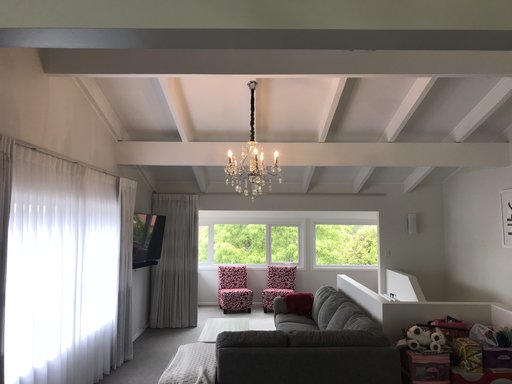Construction Disputes Lawyers in Auckland – Type Of Cases They Handle
Construction dispute lawyers in Auckland handle a broad variety range of cases. These can range from payment issues, land disputes, questionable quality, and many more. When you think about all of the different trades and services involved in a building project, even a modest house renovation, it is easy to see how disputes and misunderstandings happen.
What People Or Companies Can Be Involved?
For most projects, the builder is the lead provider. They will have some of their own staff but will also have a range of sub-contractors such as carpenters, roofers, plumbing, electricians, decorators, and lots of others.
Besides the actual trades, there will also be various professional service firms like engineers, designers, architects, surveyors, geo-tech, and more.
 Besides the actual building service providers, there are external issues like third parties such as Auckland Council, environmental issues, challenges under the RMA, and possibly others.
Besides the actual building service providers, there are external issues like third parties such as Auckland Council, environmental issues, challenges under the RMA, and possibly others.
Is it any wonder that there are so many cases for construction dispute lawyers in Auckland.
What are Examples of Construction Dispute?
Construction disputes are common. In the article below, we take a quick look at some examples.
Payment
The construction industry is notorious for payment issues. The end client may be slow making payment to the lead contractor which probably means that they in turn will be slow to pay sub-contractors.
Cashflow is crucial and margins are often thin. If a payment is slow, or even non-existent, customers will want to take action quickly in case the situation gets worse.
Payment problems are managed under the Construction Contracts Act, and, besides, non- or late payment issues, there can be claims for additional compensation due to cost variations, delays, repayment of bonds and retentions, or disruption.
Defects
Defective or incomplete work can result in a dispute. Similarly, sub-standard work lower quality of materials, or faulty workmanship. Later there may be a dispute lodged for inadequate remedial work.
Variations
In many projects, there will be a change. This can be to the design, materials, or prices. These changes are known as variations. The decision to make a variation can be from any party such as the property owner deciding that they want a different design to the entrance or switching to an alternative material. These invariably lead to an increase in cost which may be disputed.
Contract interpretation
Interpretation disputes can be a disagreement about the meaning of a clause in a contract such as what is defined as specific work.
Extension of time
Building projects are renowned for delays. When there is a problem such as a delay by a supplier, this can have a knock-on effect to the overall project schedule. In these situations, and others, one or more party may ask for an extension of time. On the other side, there may be costs for the extension or even liability for liquidated damages.
Termination or suspension
These disputes can be about when a contract can be terminated. Consequently, what damages can be claimed for a breach of contract.
Ownership
Other disputes can be about the ownership of plant or materials, especially around payment issues. Others can be about when Certificates of Compliance are withheld.
Concluding Work Construction Dispute Lawyers in Auckland Handle
 From small renovations to multi-storey office blocks, construction disputes are common.
From small renovations to multi-storey office blocks, construction disputes are common.
Given the tight cashflow is tight for most building companies, if there is a dispute, it pays to take swift action. The problem company could be having even bigger issues.
Whatever stage you might be in a construction dispute, whether a builder, professional services firm, property owner, sub-contractor, or neighbour, McVeagh Fleming is law firm with a team of construction dispute lawyers in Auckland who can help with most aspects of the issues. They can work for defence or leading a case.




 The old cliché is that a house is the biggest expense that most people ever make. In fact, the cost isn’t simply the price that you pay for the house because you will most likely have a loan from a bank or mortgage provider, and they will be charging interest. Over the life of the loan, this is generally about the same as the price you paid for the house!
The old cliché is that a house is the biggest expense that most people ever make. In fact, the cost isn’t simply the price that you pay for the house because you will most likely have a loan from a bank or mortgage provider, and they will be charging interest. Over the life of the loan, this is generally about the same as the price you paid for the house! After the signing and exchange of contracts, your lawyer will progress the documents to the lender, make sure that mortgage documents are received and signed, and then arrange for the transfer of funds from the lender to your seller’s lawyer.
After the signing and exchange of contracts, your lawyer will progress the documents to the lender, make sure that mortgage documents are received and signed, and then arrange for the transfer of funds from the lender to your seller’s lawyer. For a couple to obtain a divorce, the parties must have lived separately for two years. After that time, either of the parties may apply for a divorce.
For a couple to obtain a divorce, the parties must have lived separately for two years. After that time, either of the parties may apply for a divorce. Divorce is usually difficult for those who struggle with letting go of the inevitable. A divorce coach can provide the emotional support you need during the legal process of separation.
Divorce is usually difficult for those who struggle with letting go of the inevitable. A divorce coach can provide the emotional support you need during the legal process of separation. There are often children involved in a separation. Care of any children by one or both parents can be a problem. The
There are often children involved in a separation. Care of any children by one or both parents can be a problem. The  However, that does not mean that family lawyers can be soft or appeasing. They often have to tell their client that the client’s views are not correct. This is especially common with regard to relationship property. One party may feel they are entitled to more of the matrimonial assets than is the case. Under New Zealand law, each party is entitled to half of the join assets from the duration of the relationship.
However, that does not mean that family lawyers can be soft or appeasing. They often have to tell their client that the client’s views are not correct. This is especially common with regard to relationship property. One party may feel they are entitled to more of the matrimonial assets than is the case. Under New Zealand law, each party is entitled to half of the join assets from the duration of the relationship. A fresh coat of paint and interior painting are the easiest ways for making your home like new. You can update the existing colors or add a new trendy color scheme. If you have teenagers in your house, there might be signs of wear and tear and grubby finger marks. A top-quality interior paint job will give you and your home a new lease of life.
A fresh coat of paint and interior painting are the easiest ways for making your home like new. You can update the existing colors or add a new trendy color scheme. If you have teenagers in your house, there might be signs of wear and tear and grubby finger marks. A top-quality interior paint job will give you and your home a new lease of life. You are a newbie, and you do not know what happens in this field? The
You are a newbie, and you do not know what happens in this field? The  Before you buy any property, a lawyer can conduct a study of the property you have your eyes on. They have lots of market knowledge from the transactions they carry out so they can advise you about your intended purchase.
Before you buy any property, a lawyer can conduct a study of the property you have your eyes on. They have lots of market knowledge from the transactions they carry out so they can advise you about your intended purchase.


 The initial meeting with the representative will be vital. It’s the stage you get to know whether he or she is a good fit. Although a lawyer may look great on paper or is highly recommended, they might not be the best fit for you and so, it’s important that you do your homework. Even if they have had an excellent relationship with a friend or colleague, it is important to see if they listen to you and whether they will be able to solve the situation at hand. Only then should you consider picking the attorney for debt collection purposes.
The initial meeting with the representative will be vital. It’s the stage you get to know whether he or she is a good fit. Although a lawyer may look great on paper or is highly recommended, they might not be the best fit for you and so, it’s important that you do your homework. Even if they have had an excellent relationship with a friend or colleague, it is important to see if they listen to you and whether they will be able to solve the situation at hand. Only then should you consider picking the attorney for debt collection purposes.